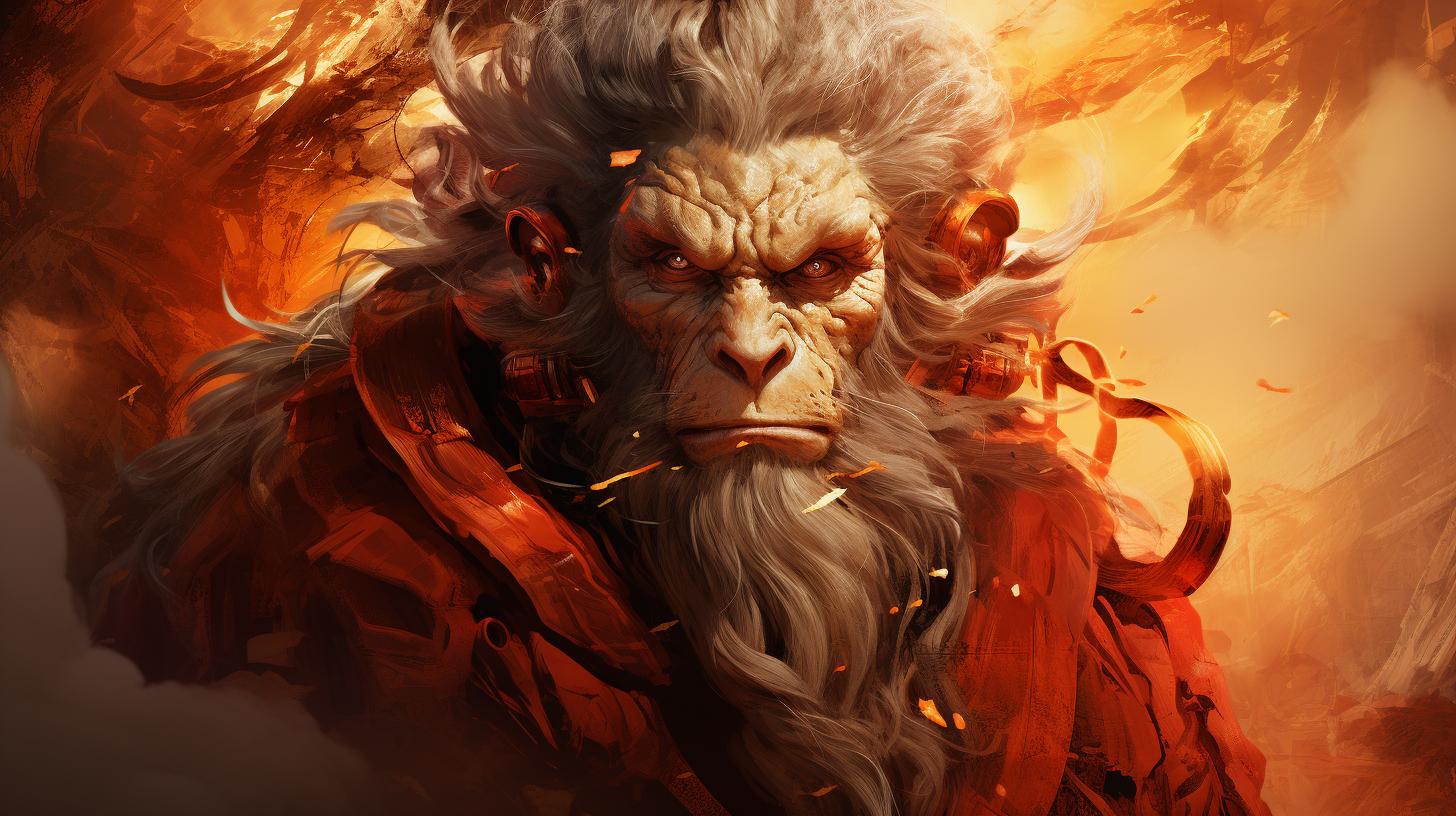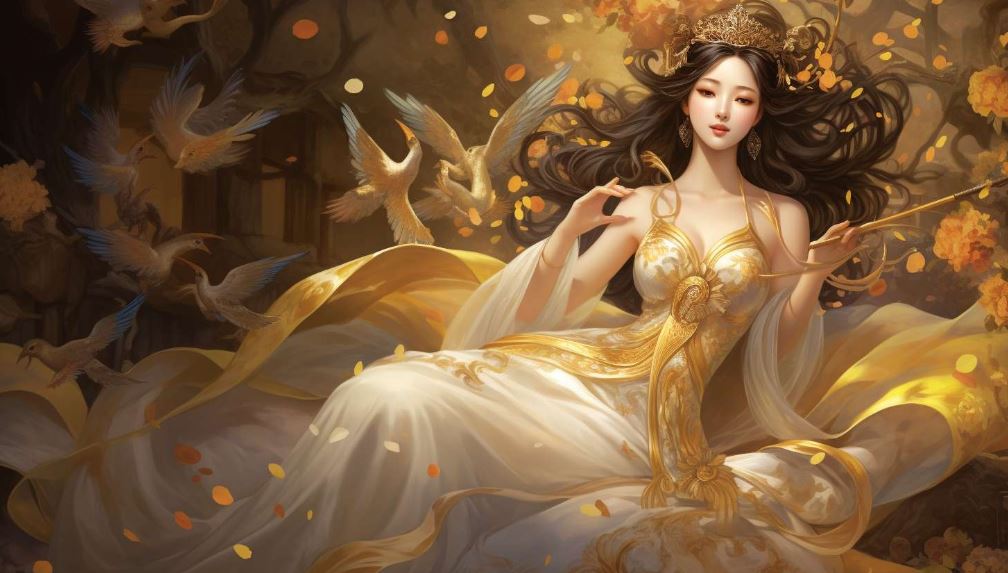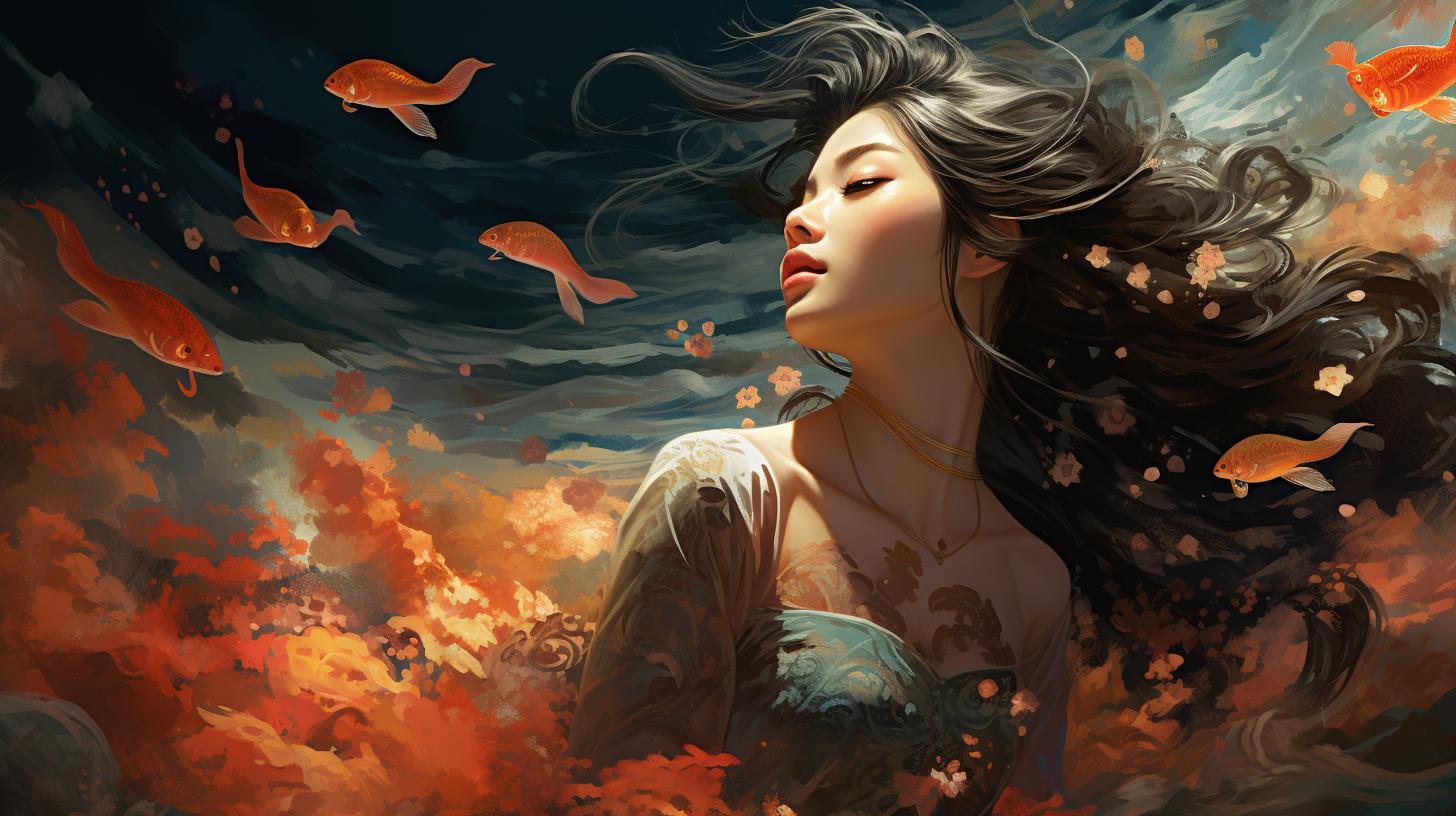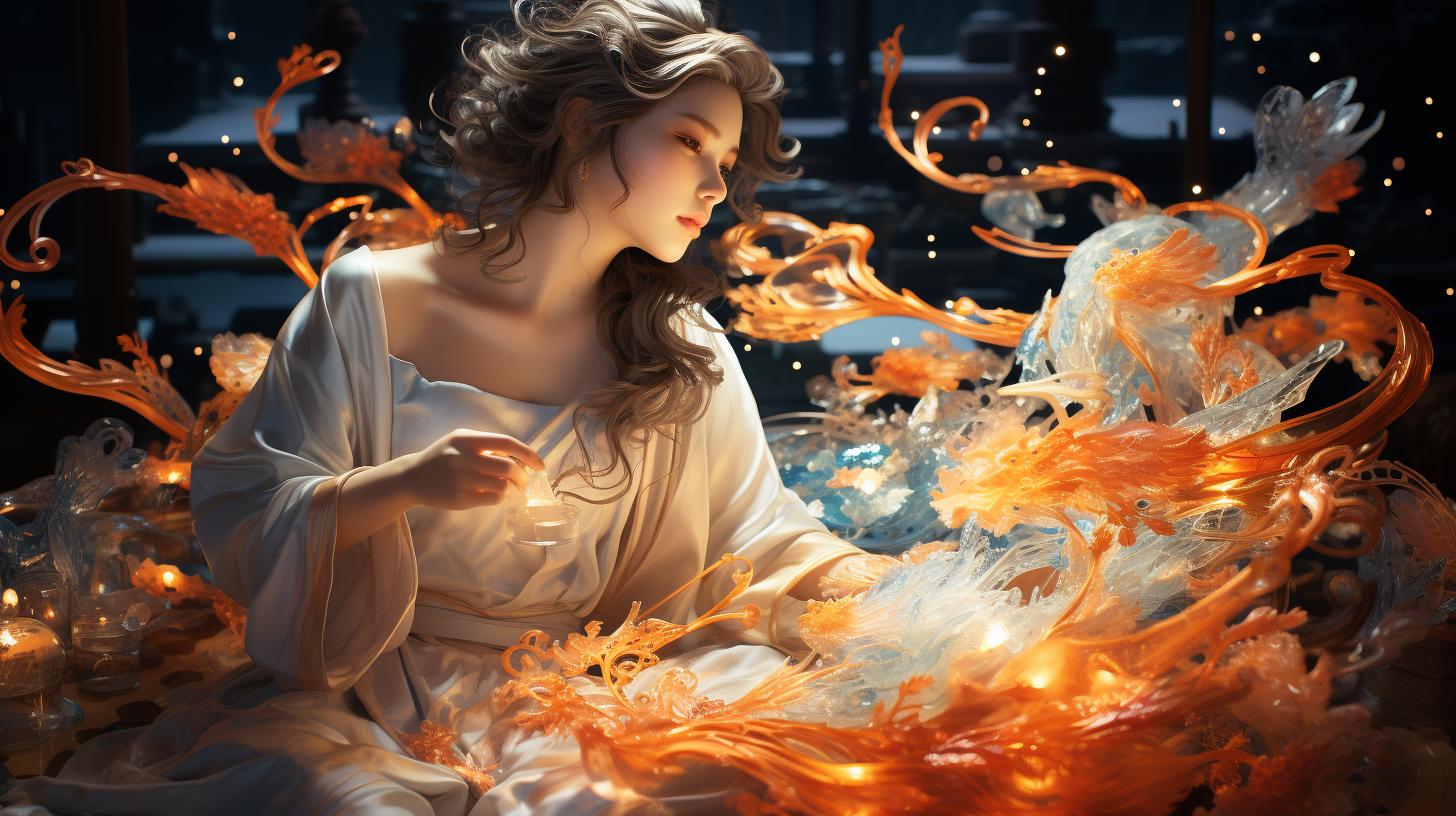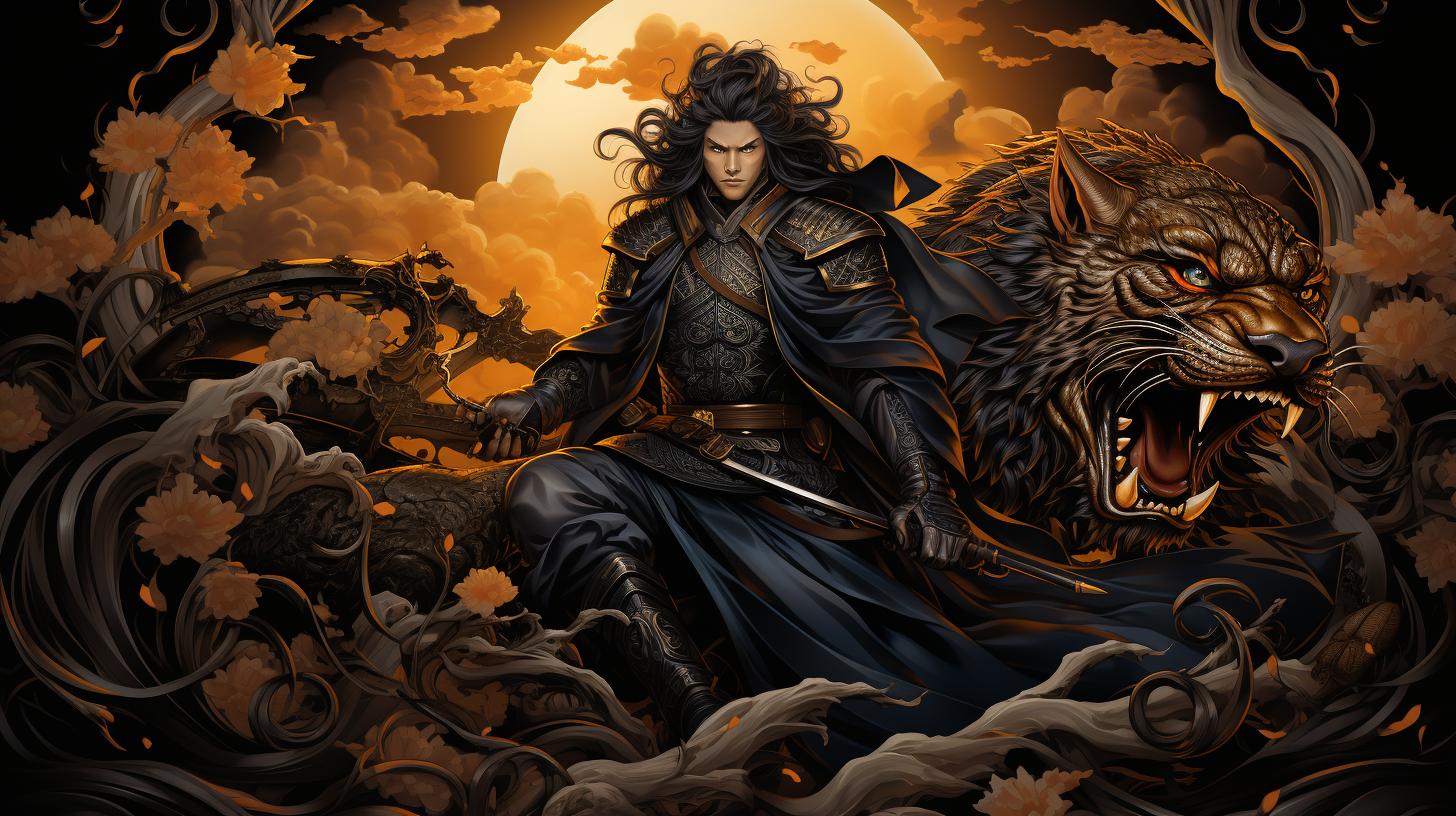Chinese Mythology Gods and Goddesses: Unveiling the Divine Pantheon
Chinese mythology is a fascinating realm filled with gods and goddesses, each possessing unique roles and characteristics. From the mighty Jade Emperor, ruler of heaven and earth, to the compassionate goddess Guanyin and the mischievous Sun Wukong, these divine beings hold significant cultural significance in Chinese folklore.
Legends like the creation myth of Pangu and the epic journey of Sun Wukong captivate audiences with their timeless tales. Join us as we explore the rich tapestry of Chinese mythology and its enduring legacy in modern times.
Gods and Goddesses in Chinese Mythology
Welcome to the enchanting realm of Chinese mythology, where a divine pantheon of gods and goddesses reigns supreme. This mystical world is filled with captivating tales and legendary figures that have captivated the hearts and minds of people for centuries.
In this section, we will explore the diverse cast of deities that form the foundation of Chinese mythology, delving into their roles, powers, and significance within this rich cultural tradition.
List of Chinese myhtology Gods and Goddesses
The Divine Pantheon: Overview
The Chinese pantheon is a vast and intricate tapestry of celestial beings, each unique in their characteristics and responsibilities. These gods and goddesses hold dominion over various aspects of life, imbuing them with their divine presence.
From the highest heavens to the depths of the underworld, the divine pantheon oversees and influences the flow of existence in the Chinese mythological realm.
Major Gods and Goddesses
Within the expansive pantheon, certain deities occupy prominent positions and are revered by countless believers. Let us now explore some of the major gods and goddesses who have left an indelible mark on Chinese mythology:
Jade Emperor: Supreme Ruler of Heaven and Earth
The Jade Emperor, also known as Yù Huáng or the Heavenly Grandfather, is regarded as the supreme ruler of the heavens and the earthly realm.
With his wisdom and power, he governs the cosmos and acts as the ultimate judge of humanity’s actions and deeds.
Guanyin: Goddess of Mercy and Compassion
Guanyin, the embodiment of mercy and compassion, is a beloved goddess who answers the prayers of those in need. Known as the “Goddess of Mercy,” she offers solace and aid to the suffering, guiding them on their spiritual journeys.
Sun Wukong: The Mischievous Monkey King
The mischievous and powerful Sun Wukong, also known as the Monkey King, is a central figure in the Chinese mythological tradition. His legendary exploits, cleverness, and supernatural abilities make him an iconic character in Chinese folklore.
Chang’e: Goddess of the Moon
Chang’e, the ethereal Goddess of the Moon, is known for her captivating beauty and her connection to lunar cycles. Legends tell the story of her ascent to the moon, where she resides and is admired by people from afar.
Dragon King: Deity of the Seas and Water
The Dragon King, ruler of the seas and master of water, wields great control over these natural elements. Regarded as a powerful and wise figure, the Dragon King is both feared and respected by both mortals and other deities.
Yan Wang: Ruler of the Underworld
Yan Wang, also known as the King of Hell or the Ruler of the Underworld, presides over the realm of the deceased. As the judge of souls, he determines the fate of the departed and ensures that justice is served in the afterlife.
Mazu: Goddess of the Sea and Patron of Sailors
Mazu, the revered Goddess of the Sea, holds a special place in the hearts of sailors and fishermen. Known for her protection and guidance, she is invoked by those seeking safety and success on their maritime journeys.
Nuwa: Creator of Humanity
Nuwa, the creative force behind humanity, is a goddess associated with the origins of life. According to myth, she molded humanity from clay and took it upon herself to restore order and harmony to the world.
Caishen: God of Wealth and Prosperity
Caishen, the God of Wealth and Prosperity, holds a revered status among those seeking material abundance and financial blessings. This benevolent deity is often invoked during festivals and ceremonies associated with wealth and success.
Bixia: Goddess of Fertility and Motherhood
Bixia, the Goddess of Fertility and Motherhood, is esteemed for her protective nature and her association with ensuring the well-being of children and mothers. She is often invoked for blessings related to fertility, childbirth, and family harmony.
These major gods and goddesses merely scratch the surface of the vast mythological lineage of China. Each deity brings distinct powers and narratives that weave together the intricate fabric of Chinese mythology.
Legends and Tales in Chinese Mythology
Legends and tales form an integral part of Chinese mythology, offering captivating narratives that provide insights into the rich cultural heritage of China. These stories depict the origin of the universe, heroic feats, and the supernatural beings that populate the realm of gods and goddesses.
The Creation Myth: Pangu and the Birth of the Universe
One of the most prominent legends in Chinese mythology is the creation myth of Pangu. According to this ancient tale, Pangu, the first living deity, emerged from the cosmic egg after its separation of yin and yang.
Pangu spent thousands of years growing taller and wider, separating the heavens and the earth and creating the pillars that supported them. When Pangu finally died, his body transformed into various elements, giving birth to the mountains, rivers, and landscapes we see today.
The Legend of Hou Yi and the Ten Suns
An enthralling tale revolves around the legendary archer, Hou Yi. During ancient times, ten suns appeared in the sky, scorching the earth and causing immense suffering. In response, Hou Yi bravely shot down nine of the suns, ensuring the survival of humanity.
As a result, he became revered as a hero and symbol of hope, forever etched in the annals of Chinese mythology.
The Story of Chang’e and the Moon Goddess
One of the most enchanting tales in Chinese mythology revolves around Chang’e, the goddess of the moon. Legend has it that she became immortal after consuming the elixir of immortality, stealing it from her husband.
In punishment, Chang’e was banished to the moon, where she resides to this day. People celebrate the annual Mid-Autumn Festival, offering mooncakes and worshipping Chang’e to express their admiration and seek her blessings.
The Epic Journey of Sun Wukong: From Stone Monkey to Hero
Sun Wukong, also known as the Monkey King, embarks on a remarkable journey in one of China’s most beloved legends. Born from a stone and blessed with incredible strength and cleverness, Sun Wukong travels alongside the monk Xuanzang as his protector on a quest to retrieve sacred Buddhist scriptures.
Throughout their adventures, Sun Wukong displays his mischievous nature, defeats powerful adversaries, and ultimately attains enlightenment.
The Dragon Kings and Their Influence on Chinese Culture
Dragons hold immense significance in Chinese mythology, and the Dragon Kings play a prominent role. These powerful deities govern the seas and waterways, controlling rain and tides and ensuring bountiful harvests.
Their influence is evident in Chinese culture, where dragon motifs are found in art, architecture, and traditional celebrations, symbolizing power, fortune, and protection.
The Folklore of Nuwa and Fuxi: The Origins of Humanity
Nuwa and Fuxi, known as the divine couple, are central figures in the folklore of Chinese mythology. Nuwa is credited with creating human beings by molding them from clay, while Fuxi is recognized as the one who taught humanity important skills such as fishing, hunting, and writing.
Their union represents the harmonious balance between yin and yang and the foundation of human civilization.
Rituals and Beliefs Related to Chinese Mythology
Within the realm of Chinese mythology, rituals and beliefs form an integral part of the cultural fabric. They provide a glimpse into the profound reverence and spiritual connection that the Chinese people have with their gods and goddesses.
This section delves into the various aspects of worship, festivals, traditional Chinese medicine, and the influence of mythology on literature and art.
Worship and Offerings to the Gods and Goddesses
Chinese culture embraces a deep-rooted tradition of worshiping gods and goddesses. Devotees express their reverence through elaborate rituals and offerings. Temples dedicated to specific deities serve as sacred spaces where prayers are offered, incense is burned, and symbolic offerings are made.
These rituals create a platform for believers to seek blessings, guidance, and protection from the divine powers.
Festivals and Celebrations: Chinese New Year and Mid-Autumn Festival
In the realm of Chinese mythology, festivals play a significant role in honoring the gods and celebrating cultural traditions. Chinese New Year, also known as the Spring Festival, marks the most important annual celebration, symbolizing renewal, prosperity, and the welcoming of the gods’ blessings.
The Mid-Autumn Festival, on the other hand, is a joyful occasion dedicated to the moon goddess Chang’e and is celebrated with mooncakes, lanterns, and family gatherings.
Role of Chinese Mythology in Traditional Chinese Medicine
Chinese mythology intertwines with the practice of traditional Chinese medicine, where the gods and goddesses are believed to have bestowed ancient wisdom upon this healing art. The principles of Yin and Yang, the Five Elements, and the connections between the human body and nature find their roots in mythological beliefs.
Traditional Chinese medicine practitioners often invoke the deities for guidance and protection in their healing practices.
Influence on Literature and Art
The mesmerizing tales and iconic characters of Chinese mythology have inspired countless works of literature and art. From classical poetry to novels, from paintings to sculptures, artistic expressions often depict gods, goddesses, and mythological narratives.
Chinese mythology serves as a wellspring of creativity, offering rich symbolism, vivid imagery, and profound philosophical themes that continue to captivate audiences across generations.
Enduring Legacy: Chinese Mythology in Modern Times
Influence on Contemporary Chinese Culture and Entertainment
Chinese mythology continues to have a significant impact on contemporary Chinese culture and entertainment. Its timeless tales and characters are prominently featured in various art forms, such as literature, theater, and film.
From retellings of the Monkey King’s adventures to adaptations of the legend of Chang’e, these stories captivate audiences of all ages. Chinese mythology also serves as a source of inspiration for modern Chinese literature, where themes of heroism, morality, and the battle between good and evil are explored.
Integration of Chinese Mythological Elements in Western Media
In recent years, Western media has increasingly recognized the allure of Chinese mythology and incorporated its elements into various forms of entertainment. Films like “Mulan” and “The Great Wall” showcase Chinese mythological themes, immersing viewers in a world of majestic dragons, legendary warriors, and mystical gods and goddesses.
This cross-cultural integration allows for a richer and more diverse storytelling experience, bridging the gap between Eastern and Western mythologies.
Continued Reverence for Mythological Deities
Despite the modernization of Chinese society, reverence for mythological deities remains deeply rooted in the culture. Many Chinese people still observe traditional customs and rituals related to these deities, seeking blessings, protection, and guidance.
Temples dedicated to major gods and goddesses attract worshippers, showcasing the persistent belief in their supernatural powers. Moreover, festivals and celebrations connected to Chinese mythology, such as the Dragon Boat Festival and the Lantern Festival, continue to be cherished and celebrated across the country.
In conclusion, Chinese mythology’s enduring legacy persists in the modern era, influencing contemporary Chinese culture, finding its place in Western media, and maintaining reverence for mythological deities. This rich tapestry of stories and beliefs continues to captivate and inspire, bridging the gap between the past and the present, and ensuring the preservation of China’s vibrant mythological heritage.
.

